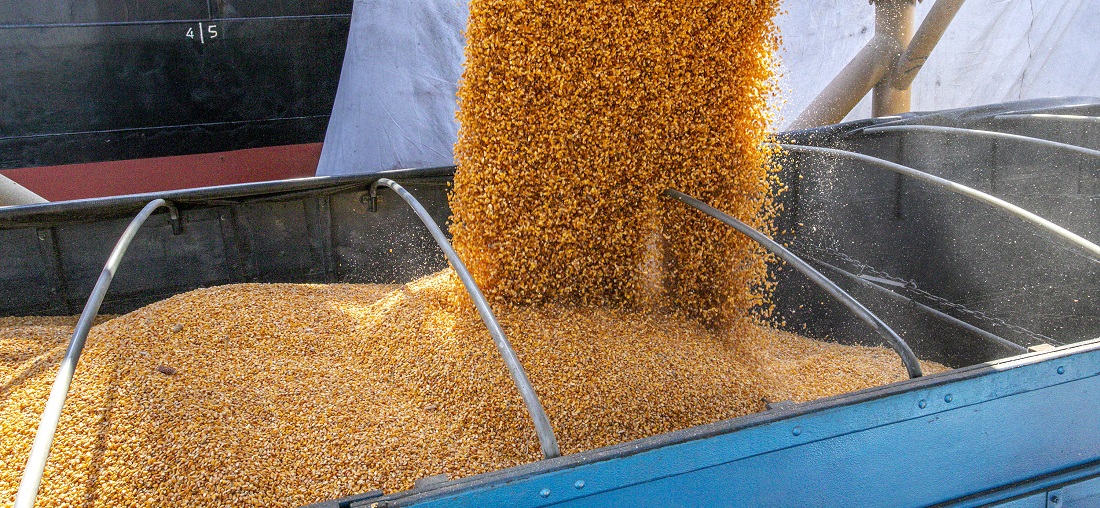
Brazil is now one step closer to selling corn to China
May, 24, 2022 Posted by Gabriel MalheirosWeek 202221
Brazil and China signed two phytosanitary protocols to enable the selling of Brazilian corn and peanuts in the future to the Asian country during the sixth Plenary Session of the China-Brazil Commission of High Level of Agreement and Cooperation (Cosban) on May 23. However, the protocols signed do not guarantee the immediate start of shipments. The next step will be qualifying exporting establishments. Similar agreements for the trade of brans and protein concentrates of soybeans and sesame seeds have not yet been concluded.
The strategic plan, on which bilateral decision-making will be based for the next decade, and the executive plan, outlining guidelines for the Sino-Brazilian relationship until 2026, were approved. The documents emphasize the importance of diversifying the export agenda. In addition, both agreements cement Brazil’s position as a reliable partner in meeting China’s demand for food security.
See below which were the main corn export destinations from Brazil in 2021 and 2022 from January to March. These data were provided by DataLiner.
Main corn export destinations | 2021 | Jan – Mar 2022 | WTMT
Source: DataLiner (click here to request a demo)
The vice president of the Republic, Hamilton Mourão, who heads the Brazilian session of Cosban, said that Brazil wants “to add value to the three commodities we most export to China: soybeans and derivatives, iron ore and oil. Also, we want more openness to our products. Today, we discussed the issue of wheat that will be produced in Bahia, Ceará, and Roraima,” he added. Today, Brazil is an importer of wheat.
The commitment to formulate and implement phytosanitary measures “in a scientifically and minimally trade-restrictive manner” in accordance with international organizations’ standards is among the actions to be taken by 2031. Brazil is particularly sensitive to the issue, having gone three months without exporting beef to China last year due to two atypical cases of “mad cow” disease confirmed in the country.
Brazilian meatpackers remain under embargo due to the identification of nucleic acid from the new coronavirus in frozen meat packages sent to Asia. The industry complains that the suspensions have no “scientific basis.”
“China has adopted a strategy for coping with covid that is totally different from the rest of the world, the ‘zero covid’ strategy. Now and then, this causes disruptions in global supply chains, but in our case, we had a very intense relationship,” said Mourão.
The executive plan approved with guidelines until 2026 has a specific article detailing measures for agriculture, fish farming, and fishery. According to the document, the countries “agree to improve cooperation on sanitary and phytosanitary requirements, improve the process of qualifying new exporting establishments, and the adoption of the health status recognized by the World Organization for Animal Health (OIE) and the recommendations of the International Plant Protection Convention, as well as FAO’s Food Code to promote trade while protecting human health.”
The text discusses “intensifying collaboration for the supply of high-quality food and accelerating reciprocal access to their markets,” as well as efforts to ensure “the long-term predictability of agricultural production and trade.”
Brazil will try to benefit from some green funds created by the Chinese, but Mourão said that deforestation of the Amazon was not a topic of conversation.
Source: Valor Econômico
To read the full original article, please go to:
https://valor.globo.com/agronegocios/noticia/2022/05/23/brasil-da-mais-um-passo-para-vender-milho-a-china.ghtml
-
Logística Outros
Dec, 03, 2018
0
Rabobank estimates Brazil’s 2019/20 coffee crop at 55-56m 60kg bags
-
Grains
Jul, 29, 2022
0
Brazil’s fiscal auditors protest wreaks havoc on corn export payments
-
Ports and Terminals
Jan, 06, 2023
0
Mobile harbor crane arrives at the Port of Rio Grande
-
Shipping
Aug, 10, 2021
0
World’s largest container ship sails to Yantian on maiden voyage



